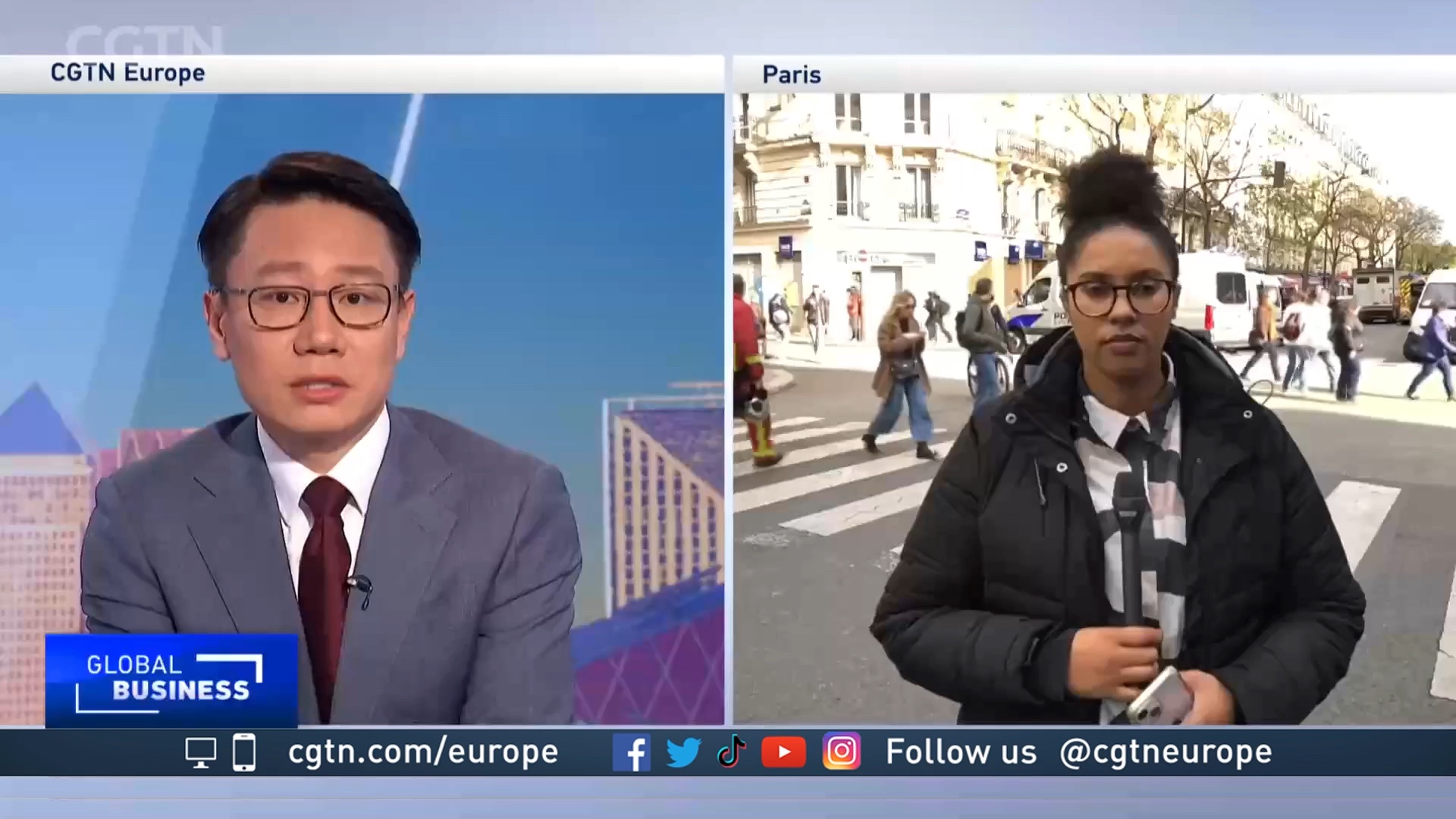04:28

Mass protests across France saw demonstrators hurl Molotov cocktails and fireworks at police as Labor Day sparked a new wave of violence in opposition to President Emmanuel Macron's pension reform policy that will increase the country's retirement age from 62 to 64.
Union leaders said at at least 2.3 million people took part in the demonstrations on Monday, though France's interior ministry said the official figure was around 782,000, with 200 of those being arrested.
The worst of the violence took place in Paris, Lyon and Nantes, where bus stops were smashed up and building materials torched, as police responded with tear gas and the wielding of batons against the worst offenders.
READ MORE:
Clamor and clang: How pot-banging became a global protest symbol
Berlin's May Day protests keeping police on their toes
Ding Liren makes chess history as China's first male world champion
In Paris, emergency services used a water cannon to put out a fire which blackened the windows of nearby flats, while one officer was badly injured when he was struck by a fiery projectile.
While the number of people taking part in the protests appeared substantial, it did seem like crowds were shrinking after 12 days of major strikes. Some workers admitted it had been difficult to continue losing a day's wages to participate in the protest action week after week.

Across France, hundreds of thousands protested against President Emmanuel Macron's pension reform policy. /Luc Auffret/Reuters/QG media
Across France, hundreds of thousands protested against President Emmanuel Macron's pension reform policy. /Luc Auffret/Reuters/QG media
Last month, the Constitutional Council approved President Macron's policy changes to the pension system, despite widespread opposition across the country.
The policy was first advanced through Parliament on March 16, using Article 49.3. This is a constitutional power at the discretion of the ruling party used to bypass lawmakers and pass legislation without a vote.
The reforms, and the way it advanced through the national legislature, sparked outrage from the opposition benches and trade unions, who deemed the process unfair.
Macron's government maintains the legislative changes were necessary to keep the pension system financially viable. The new laws are expected to come into effect by the start of September.

Police responded to the violence by using water cannon and tear gas to disperse the biggest crowds, as large demonstrations took place in Paris, Lyon and Nantes. /Benoit Tessier/Reuters
Police responded to the violence by using water cannon and tear gas to disperse the biggest crowds, as large demonstrations took place in Paris, Lyon and Nantes. /Benoit Tessier/Reuters
But unions say this won't dampen their action – and younger people are particularly motivated to keep the protest movement alive.
Perrine Thomas, 32, is one of those workers who's been part in the rolling strikes. To lessen the financial impact, Perrine and her colleagues have been collecting donations to fund striking workers.
"I won't be retired in two years but I am working today with the hope of being able to enjoy my retirement," she says. "Right now, we keep being asked to work two more years every time.
"Retirement keeps being pushed back so it's hard for people of my generation. I'm also here for my parents – we are seeing them working almost to death so if we don't do it for ourselves, at least we have to do it for others."

Last month, French President Emmanuel Macron used Article 49.3 to push through his plans to raise France's retirement age from 62 to 64 without a vote. /Reuters/Benoit Tessier.
Last month, French President Emmanuel Macron used Article 49.3 to push through his plans to raise France's retirement age from 62 to 64 without a vote. /Reuters/Benoit Tessier.
Months of protesting have already cost the state millions of dollars as workers in all industries have gone on strike. The aviation industry was once again affected by strike action on May 1 and the rail network all but ground to a halt.
It's no coincidence that this day of major protest action was held on a day deeply rooted in the fight for workers' rights.
"We have power in numbers," says Perrine. "Apart from protesting there aren't a lot of non-violent options for us."
The mass crowds on the streets of Paris took part in just one of at least 300 separate protests taking place across France.
Subscribe to Storyboard: A weekly newsletter bringing you the best of CGTN every Friday
Source(s): Reuters